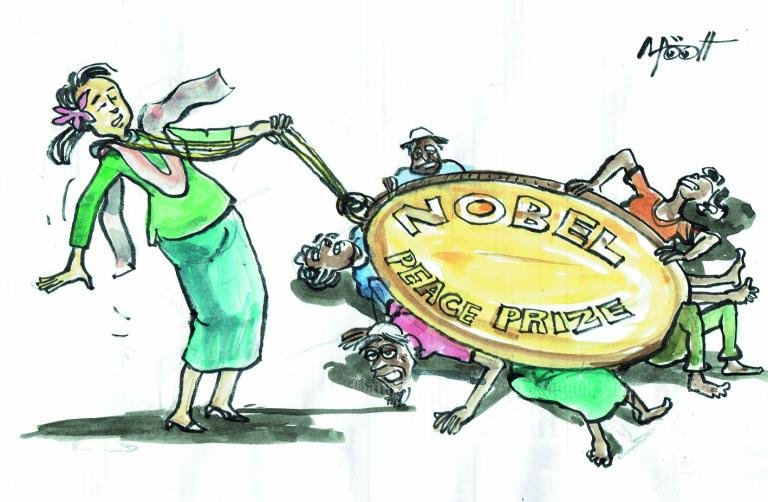
The Myanmar government has caused or allowed a human tragedy to escalate and turn murderous in its Rakhine state. The plight of the Rohingya has gone from bad to worse. A fledgling jihadist group has appeared in the mix. Nay Pyi Taw and an apparently confused and directionless Myanmar leader Aung San Suu Kyi have received and deserved condemnation from around the world. But from arguably the most important source there has been only an embarrassing and startling silence.
Asean has a moral and legal duty to respond to the crisis over the Myanmar Rohingya. But from the group, from its secretary-general and from most of the other member countries, the silence has been deafening. Only two Asean members, Malaysia and Indonesia, have spoken out against Myanmar's treatment of its Rohingya minority.
The ethical necessity to call on Myanmar to stop its human rights abuses is clear. Asean diplomats, in private, claim they must remain tight-lipped. But precedent and the group's own charter demand otherwise.
Within the past few days, the European Union has called on Ms Suu Kyi's government to resolve the crisis and recover the displaced Rohingya from Bangladesh. The US State Department has even more strongly called on Myanmar to allow access to an estimated quarter of a million refugees, and to embattled, fire-charred villages of Rakhine state. Britain demanded that Ms Suu Kyi personally step in to "stop the violence". The UN Secretary-General Antonio Guterres said forthrightly that it's for the Myanmar government to immediately give the Rohingya Muslims either nationality or legal status.
And Ms Suu Kyi? She has broken her own lamentable and self-condemning silence just once, and without credibility. Last week she condemned "fake information" from unfriendly sources which she could not, of course, identify. She said Myanmar army and police were working to stabilise Rakhine state because of a terrorist threat. There was no truth at all to reports of atrocities such as burning villages and mistreatment of Rohingya including outright retributive killings.
As she spoke, a dozen journalists in Rakhine watched and photographed a Rohingya village as it burnt to the ground. At the village school, copies of the Koran were ripped apart, pages strewn around. Such scenes, witnessed and filmed, are why Ms Suu Kyi has lost all credibility on the Rohingya and security issues.
Her fellow Nobel Peace Prize winner Malala Yousafzai of Pakistan challenged Ms Suu Kyi to do the right thing by the Rohingya. Vicious and apparently paid anti-Muslim Myanmar social media posters instantly began a campaign, "We hate you, Malala".
Ms Suu Kyi's self-defence and sycophants lack logic as well as humanitarianism. They say the elected Myanmar leader is wary of confronting the army over the Rohingya issue. Another military coup, they claim, is not just possible but would plunge the country back into the dictatorial and vicious dark ages. But that is the same army that Ms Suu Kyi confronted and enraged for 20 years. Then, she forced the military to accede to democratic principles. Now, she refuses to take any principled stand against undoubted war crimes by the tatmadaw.
Asean's duty is clear, but the group has been as timorous as Ms Suu Kyi. Asean has done the right thing in the past, and should do so again. The group stood up to and actually solved a Southeast Asian crisis that threatened to spill war out of Cambodia in the 1980s. In 1999, Asean and particularly Thailand intervened militarily to get independence for East Timor from Asean member Indonesia.
Regional security is already at risk. Asean must act now in the Rohingya crisis to maintain its credibility.
